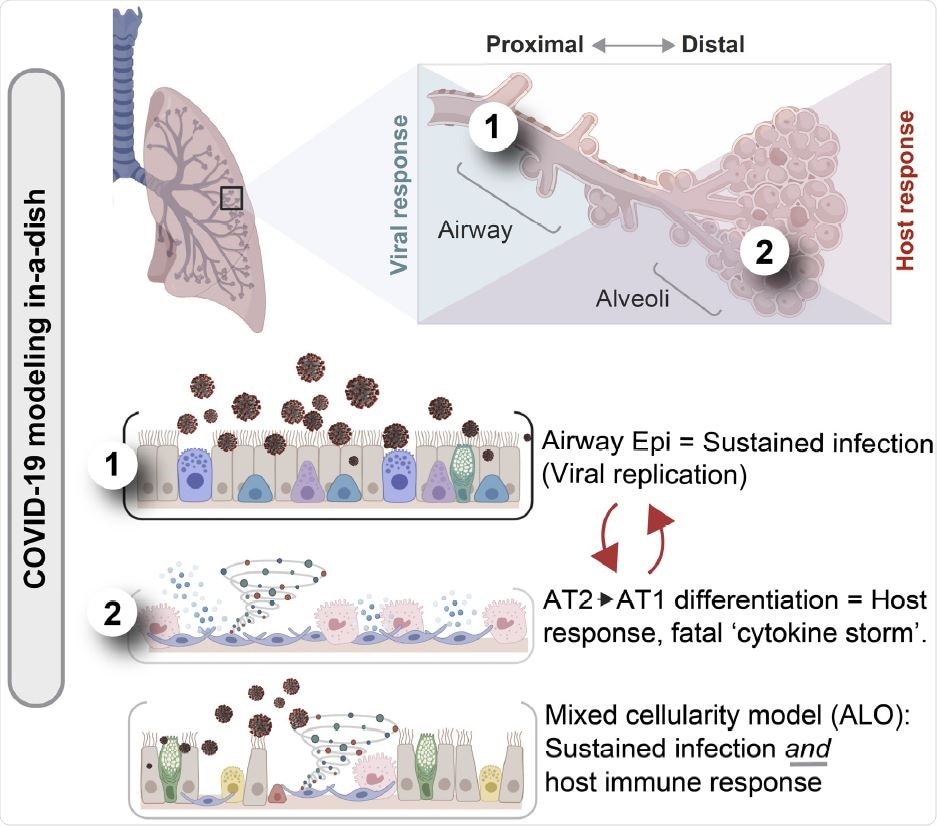The Race for COVID-19 Death Prevention
"The results are encouraging, they definitely support moving forward into a larger randomized trial.""This is a population that has extremely poor outcomes, so anything that can reduce the severity of the disease and improve survival and recovery is really, really important."Dr.Duncan Stewart, CEO, The Ottawa Hospital Research Institute"This idea here is that you're using a cell that is capable ... of reversing the damage caused by a huge activation of the immune system.""In a way, you are bringing some order and direction to the immune system.""You really are trying to tackle more than one thing at once [in] modulating [the immune system]."Dr.Ines Colmegna, McGill University
 |
| Shutterstock |
Medical science continues to struggle in coping with the worst manifestation of the COVID-19 pandemic, against a virus that adamantly refuses to surrender any of its weak points of entry to researchers to enable humanity to meet the destructive challenge of a pathogen threatening the globe. As yet, research has found no solution to a virus whose effects in some of its victims causes an out-of=control response from the body's immune system which tends to attack lungs, sapping peoples' capacity to breathe.
Even as some improvement in treatment has eventuated over the past year, up to 40 percent of COVID patients who end up in the intensive-care unit are destined never to emerge again, alive. New on the horizon is a belief within the research community in Canada and elsewhere that an unlikely source exists to alleviate the conundrum, one that happens to be a byproduct of childbirth. Where discarded umbilical cords, a rich source of mesenchymal stromal cells (a type of stem cell scientists hope may be able to reset that berserk immune system and tamp down damaging inflammation) may provide some answers.
In Canada two clinical trials are underway, with dozens more embarked upon in other countries, with an aim to test the idea on the most ill of COVID patients. Still to come are results of randomized, controlled tests of the cells' efficacy, yet there are encouraging early signs. A small number of observational studies without a placebo group for comparison, have produced hopeful results, including one recently published by an Iranian team of researchers.
A phase one safety trial of the cells on eleven patients has been completed at the Ottawa Hospital Research Institute, indicating that the treatment was well tolerated. Another research team at McGill University plans to test yet another MSC product derived from umbilical cord blood, produced by a Swedish company.
COVID-19 has been described by some experts as being similar to two different diseases; the first with the virus itself triggering various symptoms which eventually tend to clear in most patients -- while the second occurs when the immune system becomes hyperactive, inciting massive inflammation while impacting the cells of the lung, strangling their ability to shift oxygen to the bloodstream. Which can result in acute respiratory distress syndrome (ARDS), the most dangerous of COVID-19 symptoms, leading to many patients placed on ventilators to fight for their lives.
Potential treatments of various types for the condition have been attempted, but none has proven successful. However, mesenchymal stromal cells (MSCs) having the capacity to transform into other types of cells, invited investigation as a method by which damaged or diseased tissues could conceivably regenerate. While the results turned out less than completely encouraging, they did appear proficient at "modulating" the immune system, readjusting it to fight off disease while stopping the immune system from turning against the body.
Those elementary cells also -- unlike single-molecule treatments -- have a unique ability to multi-task, targeting a number of factors causing damage. Prior to the appearance of the global pandemic a phase one trial with the use of MSCs to treat acute respiratory distress syndrome -- caused by septic shock -- had been undertaken by the Ottawa team. In October, a team of Chinese researchers reported on a study of 61 patients suffering from ARDS due to H7N9 flu. Where fewer of the 17 receiving stem cells died than those who wee not given the treatment.
Dr.Stewart believes his team's MSC product has an advantage over others since it is derived from fresh living cultures, and as a result is likelier to be more potent than others that have been frozen, then thawed. "Off-the-shelf" products, on the other hand, tend to provide more flexibility in emergency cases when speed is of the essence.

Labels: CIVUD-19, ICUs, Overstimulated Immune System, Research, Stem Cells

0 Comments:
Post a Comment
<< Home